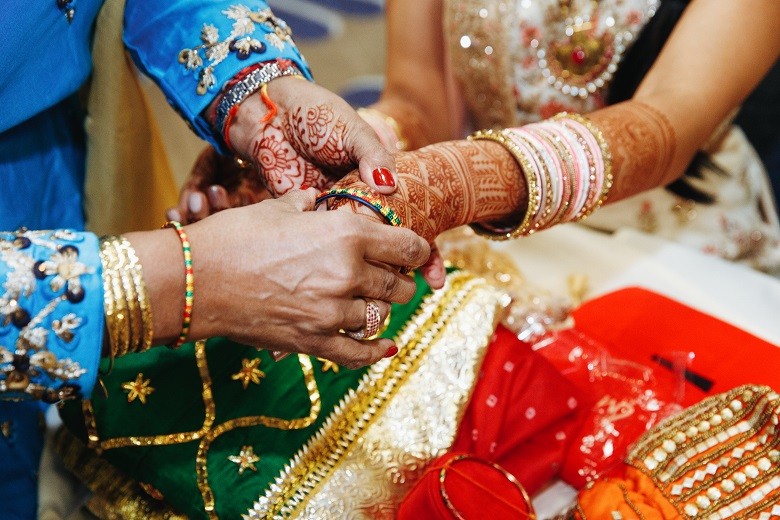
Why Arranged Marriages in India Succeed More Than Love Marriages
Jan 14, 2025
In India, arranged marriages have been the traditional way of union for centuries, and their success rate is often debated. While love marriages have become more common in recent years, many still believe that arranged marriages tend to last longer and have a higher success rate. But what is the reason behind this belief? Let's explore why arranged marriages in India tend to succeed more than love marriages.1. Family Support and Involvement
One of the most significant reasons why arranged marriages in India have a higher success rate is the level of family involvement. In an arranged marriage, both families are deeply involved in the process, ensuring that the couple is compatible not only on a personal level but also on a familial and cultural one. This support network is essential in times of conflict or stress, as families act as mediators, offering emotional and practical support.
In contrast, love marriages may lack this level of familial involvement. The couple, although emotionally invested, may not have the same support system to navigate difficult situations, leading to strain in their relationship.
2. Compatibility and Practical Considerations
Arranged marriages are often based on a careful consideration of various factors such as family background, education, lifestyle, values, and even astrological compatibility. These aspects ensure that the couple is compatible beyond just emotional attraction. In an arranged marriage, families usually prioritize long-term compatibility over initial passion, which leads to a more stable foundation.
In love marriages, compatibility is primarily determined by personal emotions, and while this can lead to strong initial attraction, it may not always be sustainable in the long run. When love marriages face challenges, the emotional bond may not be enough to overcome differences in values, interests, or backgrounds.
3. Reduced Unrealistic Expectations
Love marriages often come with idealized expectations, largely influenced by media, societal norms, and the initial emotional rush of falling in love. These high expectations can lead to disillusionment when reality sets in, and the couple may find it difficult to meet each other’s needs and expectations.
On the other hand, arranged marriages typically come with more realistic expectations. Since the couple enters into the marriage with a practical mindset, they are often better prepared to handle challenges and adjust their expectations accordingly. The focus is more on building a relationship over time, rather than expecting instant perfection.
4. Gradual Adjustment
Arranged marriages allow for a gradual adjustment period. Since the couple is often given time to get to know each other before marriage, they can slowly adjust to their partner's habits and quirks. This helps them develop mutual understanding and tolerance, essential for a long-lasting relationship.
In love marriages, couples may experience an intense period of infatuation before marriage, which can cloud their judgment. Once married, they may find that their partner’s habits or personality traits are difficult to adjust to, leading to conflict and frustration.
5. Community and Social Pressure
In Indian society, social norms and community pressures play an important role in the success of a marriage. Arranged marriages are often seen as more socially acceptable, and couples feel a stronger sense of responsibility towards their families and communities. This sense of duty can act as a stabilizing factor in the relationship.
In love marriages, while the couple may have chosen each other, they may face external pressure from society or family if they don’t live up to expectations, leading to added stress and strain on the relationship.
6. Emphasis on Commitment
Arranged marriages in India often come with a strong emphasis on commitment. Both individuals and families understand that marriage is not just about love, but also about responsibility and sacrifice. There is often a shared understanding that marriage is a lifelong commitment, and this sense of duty can help couples navigate tough times.
In love marriages, while commitment is essential, the intensity of initial emotions may not always be enough to sustain the relationship through challenging times.
7. Cultural and Religious Alignment
Cultural and religious alignment plays a crucial role in the success of arranged marriages. In India, arranged marriages are often based on shared cultural values, religious beliefs, and community norms. This alignment can reduce potential conflicts and make it easier for couples to navigate the complexities of married life.
In love marriages, especially those that involve individuals from different cultural or religious backgrounds, there may be challenges in reconciling differences, which can create friction and affect the relationship.
Conclusion
While both arranged and love marriages have their merits, arranged marriages in India tend to succeed more due to the support system, compatibility, practical considerations, and the strong sense of commitment that they offer. The involvement of families, a focus on realistic expectations, and cultural alignment provide a solid foundation for a long-lasting relationship.
If you're looking for professional guidance and support in finding the right match, Siddhi Matrimonials offers expert matrimonial services in Delhi. Our team ensures a personalized approach to help you find a compatible partner, based on your preferences and values. Let us help you start your journey towards a happy and successful marriage.
